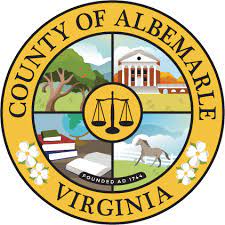With only four months left in the year, the 2022 General Assembly session looms large and localities across the Commonwealth are putting together their legislative wish lists. Albemarle County will meet with area legislators in November with the hopes of enticing each to carry bills for changes in state law. (read list of 2021 legislative positions)
One request has the title “Enable Civil Penalties in Lieu of Criminal Punishment.”
“The purpose was to decriminalize a lot of the actions that are prohibited under the code,” said county attorney Greg Kamptner.
Many of these actions relate to zoning violations and would convert them to civil infractions rather than criminal ones. Some supervisors were concerned that frequent violators are still able to be held accountable. (sample legislation)
“I just want to make sure we’re not doing anything that makes it more difficult to deal with the so-called frequent fliers,” said Supervisor Diantha McKeel of the Jack Jouett District. “I recognize that there are not that many of them, but the ones that we have have just really consumed an enormous number of staff time.”
Zoning administrator Bart Svoboda said if the change was made, the county would be able to request higher fines for repeated violations.
“There may be some additional tools in the toolbox as we apply this to other sections of the county code,” Svoboda said.

Another legislative priority is to change law to require inspections and building standards for structures built for events and operations on agricultural properties.
“The buildings under current law do not have to meet the minimum requirements of the building code,” Kamptner said.
Kamptner said the agricultural community and the Farm Bureau would need to be involved in order for the legislation to have a chance of passing.
Supervisor Ann Mallek of the White Hall district said buildings where events are held should at the least be required to have features like panic bars in case of emergencies. She hoped to get support from her colleagues to move the legislation forward.
“If people want to put a tractor or livestock in some building, that’s different than having 300 people there,” Mallek said.
Another legislative idea is to expand an already approved law that allows photo-speed monitoring cameras to be used in school crossing zones and highway work zones. (HB1442 from 2020)
“The idea would be to expand the enabling authority to allow localities to decide whether they want to place these devices on rural roads,” Kamptner said.
LaPisto-Kirtley said police struggle to enforce speeding on two-lane roads in the rural area.
“I think long stretches of the rural roads where there it is virtually impossible for the police to ticket someone because if they do stop someone on a two-lane road it’s going to cause a mile-long back up,” LaPisto-Kirtley said.
Supervisor Diantha McKeel suggested the legislation be tailored for specific roads rather than a blanket provision. She also said Albemarle has yet to implement the authority it currently has.
“Our police department is still looking at that,” McKeel said. “They’re going to have to come back to us to let us know if they think they can even do that.”
Kamptner said the 2020 bill that gave enabling authority for cameras at work and school zones had originally included residential areas, but that was removed in order for it to pass.
“The concern that we have in our county are the crashes and the number of deaths which would indicate high speed so if we were to pursue these devices in locations at above 35 miles per hour that would take us out of the traditional residential areas,” Kamptner said.
Supervisors also discussed legislation to allow a portion of recordation tax to be set aside for affordable housing initiatives. They opted to not pursue legislation, but to instead find out whether they can take that step without additional enabling authority.
A final vote on the 2022 legislative agenda will be held in October.











